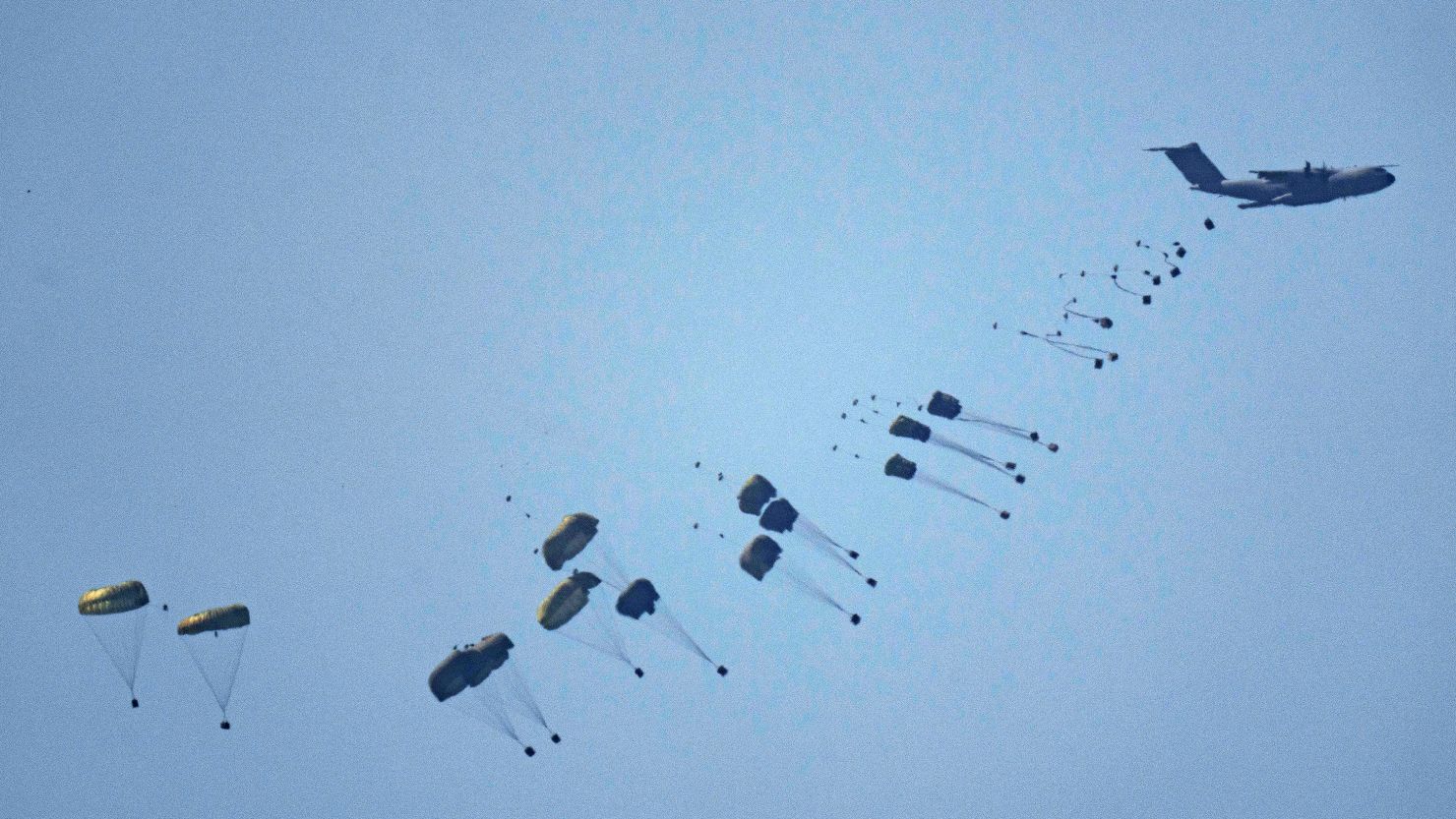Israel announced it would allow foreign countries to conduct airdrops of humanitarian aid into Gaza, where hunger and malnutrition have reached critical levels. Jordan and the United Arab Emirates are expected to begin the deliveries imminently, according to COGAT, Israel’s military liaison for Gaza.
Britain is also coordinating with Jordan to deliver aid and evacuate critically ill children to the U.K. for treatment, British Prime Minister Keir Starmer confirmed.
Global Pressure Mounts on Israel as Gaza Starves and Symbolic Airdrops Begin
The announcement follows growing condemnation from the international community, including Israel’s close allies. Britain, France, and Germany jointly demanded an end to the “humanitarian catastrophe” unfolding in Gaza.
France also declared its intent to recognize a Palestinian state, joining other European nations in signaling a shift in policy. Although Prime Minister Starmer supported statehood, he emphasized it must come through a broader peace plan involving a two-state solution.

Despite the move, experts and aid organizations criticized the planned airdrops as symbolic and insufficient to address the scale of the crisis. With nearly two million people in Gaza facing extreme deprivation and one-third going days without food, airdrops cannot replace the volume of aid needed. Acute malnutrition is rising rapidly, and children have died from starvation, according to local health authorities.
Land Aid Blocked by Bureaucracy, Violence as Cease-Fire Talks and Hope Collapse
The United Nations has accused Israel of placing severe administrative and logistical obstacles on ground aid delivery, including delaying permits and failing to ensure security for convoys. Armed groups inside Gaza have also disrupted aid operations. U.N. officials stressed that land convoys, not air deliveries, are the most effective way to get food into Gaza and criticized Israel for limiting those options.
Efforts to negotiate a cease-fire between Israel and Hamas have stalled, with negotiators from Israel and the U.S. recently withdrawing from talks in Qatar. A previous cease-fire allowed hundreds of aid trucks to enter Gaza daily between January and March, but as talks collapsed, Israel significantly restricted aid access for over two months. Sporadic aid deliveries resumed in May, but volumes remain far below Gaza’s needs.
Even when aid does enter Gaza, it often results in chaos due to the overwhelming need. A recent World Food Program convoy was fired upon after entering the territory, as desperate crowds surrounded the trucks. Gaza health officials reported dozens killed and injured, while Israel claimed its soldiers fired warning shots to disperse crowds. The incident highlights the perilous conditions for both aid workers and civilians in a territory teetering on the edge of famine.












Leave a Reply